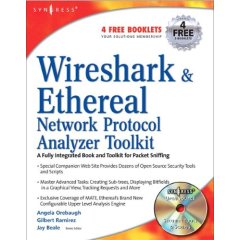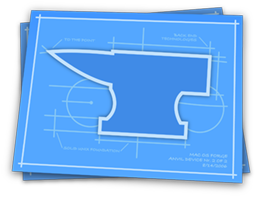10 December, 2006

The 2.0 release of
psad is ready for
download. This release is a major
update of psad, and many new features have been added. Psad now more fully supports
the Snort rules language via Netfilter log messages. The Snort keywords
ttl,
id,
seq,
ack,
window,
icmp_id,
icmp_seq,
itype,
icode,
ipopts, and
sameip are now supported.
Signature updates are made available on cipherdyne.org, and can be automatically
updated by psad by a new command line argument
--sig-update. Visualization
of Netfilter log messages is now possible by combining the new
--CSV options
with the
AfterGlow project,
and to illustrate this graphs of two of the
Honeynet Project scan challenges are availble online
here and
here.
Here is an exerpt from the
ChangeLog:
- Completely refactored the Snort rule matching support in psad. Added
many header field tests with full range matching support. These tests
include the following keywords from Snort: ttl, id, seq, ack, window,
icmp_id, icmp_seq, itype, icode, ip_proto, ipopts, and sameip.
- Refactored all signatures in /etc/psad/signatures to conform to new
signature matching support in this release. There are now about 190
signatures that psad can run directly against Netfilter logging
messages (i.e. without the help of fwsnort).
- Added the ability to download the latest signatures file from
http://www.cipherdyne.org/psad/signatures with the --sig-update command
line argument to psad.
- Added "MISC Windows popup spam" signature. This allows psad to detect
when attempts are made to send spam via the Windows Messenger
service.
- Completely reworked --Status and --Analyze output, signature matches
are included now, along with a listing of top sig matches, top scanned
ports, and top attackers. Also, scan data is not written to
/var/log/psad/ipt_analysis/ before display analysis output in -A mode;
analysis results are displayed much faster this way.
- Added ipEye, Subversion, Kuang2, Microsoft SQL, Radmin, and Ghostsurf
signatures.
- Added 'data in TCP SYN packet' signature.
- Added --CSV mode so that psad can be used to generate comma-separated
value output suitable for the AfterGlow project (see
http://afterglow.sourceforge.net/index.html) for graphical
representations of Netfilter logs and associated scan data. Also added
nf2csv so that normal users can take advantage of this feature.
- Added emulation of the Snort "dsize" test through the use of the IP
length field for TCP/ICMP signatures, and the UDP length field for UDP
signatures. For SYN packets, TCP options are included so psad
automatically adds 44 bytes (the maximum length for TCP options) so the
dsize test corresponds to the estimated payload length.
- Added the psad_id, psad_dsize, and psad_derived_sids fields for the new
Snort rule support.
- Added the ability to decode IP options, which are included within Snort
rules as the "ipopts" keyword. This functionality requires that the
--log-ip-options command line argument is given to iptables when
building a rule that uses the LOG target.
- Added Snort rules (sids 475, 500, 501, and 502) that detect IP options
usage such as source routing and the traceroute IP option with the new
IP options decoder.
 The 2.0.3 release of psad is ready for
download. This release removes the
Psad.pm perl module in favor of keeping the functions within the psad daemon itself,
and the obselete kmsgsd.pl and psadwatch.pl scripts were the only other
things to use Psad.pm so it was not necessary to keep. A few other enhancements and
bugfixes were made, particularly in the -S and -A output modes. Here is the
ChangeLog:
The 2.0.3 release of psad is ready for
download. This release removes the
Psad.pm perl module in favor of keeping the functions within the psad daemon itself,
and the obselete kmsgsd.pl and psadwatch.pl scripts were the only other
things to use Psad.pm so it was not necessary to keep. A few other enhancements and
bugfixes were made, particularly in the -S and -A output modes. Here is the
ChangeLog:








